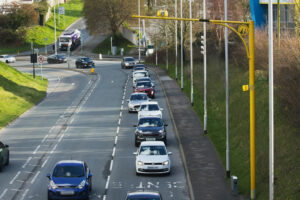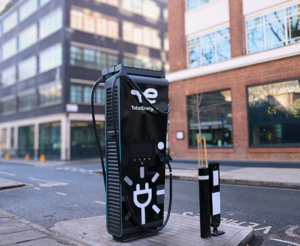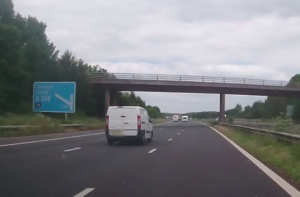A new single-ticket platform for use on public transport across the city is part of new plans featured in Exeter City’s Transport Strategy
The strategy also includes aims to develop park and ride sites on every corridor into the city as well as ‘enhanced’ rail services.
Exeter City’s council’s cabinet is set to approve the plans when it meets on Wednesday.
The strategy set out ambitious aspirations to support healthy, active lifestyles, a growing economy and a positive response to reduce the carbon emissions from transport in Exeter and has been updated to give greater emphasis on reducing carbon throughout the plans.
It outlines that the balance of travel for Exeter residents has already shifted to a point where the majority of Exeter residents now travel to work by sustainable modes but that they still account for 35% of car-based commute trips to a destination in the city.
It also recognises the importance of supporting essential business travel and maintain efficient public transport corridors but that as the city is built upon a historic road network, is constrained by limited road crossings of the River Exe and has limited scope for additional widening and capacity improvements and building extra physical highway capacity is probably not possible within the city.
But travel behaviour differs significantly for commuters living outside the city, with 80% of trips into the city being made by car and in rural areas, where there is limited alternative to car, the car dominance is even more prominent with over 90% travelling to the city by car.
At the core of the strategy is the intention to ensure a ‘comprehensive, accessible and coherent’ cycle and pedestrian network in Exeter that connects residential areas with schools, key economic hubs, public open space and transport interchanges so that 50% of trips within the city are being made on foot or by bike.
The plan also includes; a strategy that will facilitate decarbonisation of transport in the Greater Exeter city region by providing a sustainable and reliable transport system, allowing people and goods to move around the network efficiently. It will progress opportunities to remove or reduce traffic on some routes to create ‘green lanes’ and support active travel access from villages on the edge of the city, develop a new, high-quality strategic cycle link creating a city region strategic leisure network to encourage short to medium distance trips from existing settlements into Exeter and the Exe Estuary Trail and support ehanced bus frequency on key interurban routes, with an aim of achieving 15 minute bus frequency or better on key inter-urban routes into the city from Cranbrook, Crediton, Cullompton and Newton Abbot.
Enhanced bus corridors and improvements at key junctions, with particular focus will be given to enhancing Heavitree Road will help achieve more reliable journey times on a key, busy public transport route to growth in the East of Exeter and achieving an improved environment for residents, pedestrians and cyclists.
This will include elivery of the cleanest bus fleet with onboard WiFi allowing more productive travel and reduced transport costs with a greater influence on the routes being run.
The strategy also focuses on the continued improvement of ‘Devon Metro’ rail services improving the connectivity within the city region so that the towns of Cranbrook, Crediton, Dawlish, Dawlish Warren, Exmouth, Honiton, Newton Abbot and Teignmouth are served by at least half hourly rail frequency. New rail connectivity to Mid Devon, with a station at Cullompton, will also be investigated.
The council will look to expand the electric bike hire to provide the largest on-street electric bike scheme in the UK and will continue to expand and electrify the already well utilised car club fleet
Dave Black, Head of Transportation, planning and environment, in his report to the cabinet said: “The Exeter Transport Strategy focuses on improving travel choices, creating better places for people and taking advantage of technology opportunities to influence travel behaviour in a positive way.
“The focus is to address constraints on sustainable transport networks to provide the basis of a connected city region, deliver interventions that contribute to improved quality of life and to utilise technological advancements to integrate services and engage with people to influence how and when they travel.”
























